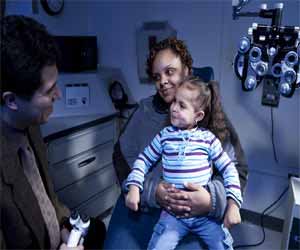Interconception care encourages providers to discuss these risk factors with mothers at their baby's checkups during their first two years of life.

TOP INSIGHT
By the time women enter prenatal care, it often is too late to influence birth outcomes, but the IMPLICIT ICC model allows modifiable risk factors to be addressed prior to pregnancy.
"Interconception care aims to improve the health of both mothers and babies, but many women are so focused on their newborns that they do not seek health care for themselves between pregnancies," said Sukanya Srinivasan, M.D., M.P.H., community faculty, UPMC St. Margaret Family Medicine Residency, and lead author of the study. "By the time women enter prenatal care, it often is too late to influence birth outcomes, but the IMPLICIT ICC model allows modifiable risk factors to be addressed prior to pregnancy, regardless of whether women are seeking care for themselves or for their child."
After analyzing more than 5,900 children across more than 17,600 well-child visits, researchers found that new mothers attended 92.7 percent of their babies' appointments, creating a significant window of opportunity to discuss their own health. The frequency of maternal screening at participating sites varied, with women receiving ICC screenings at an average rate of 69.1 percent of visits across all study sites.
Clinicians identified tobacco use in 16.2 percent of visits, delivering an intervention 80 percent of the time. Depression was identified in 8.1 percent of visits, with 92.8 percent of mothers receiving an intervention. Lack of contraception use was identified in 28.2 percent of visits, with 76 percent of those mothers receiving an intervention to promote adequate birth spacing. Multivitamin use was lacking by women in 45.4 percent of visits, with an intervention documented for 58.2 percent of those women.
"This model of care demonstrates the feasibility of incorporating ICC screenings for mothers into visits that were traditionally intended for their children," said Lisa Schlar, M.D., director of women's health, UPMC Shadyside Family Medicine Residency. "This is a promising intervention strategy that can be easily implemented on a broad scale by family medicine and primary care practitioners."
Source-Eurekalert
 MEDINDIA
MEDINDIA




 Email
Email




